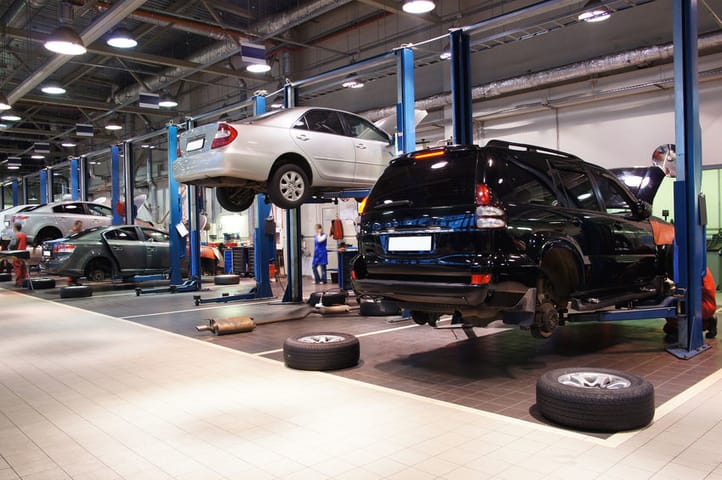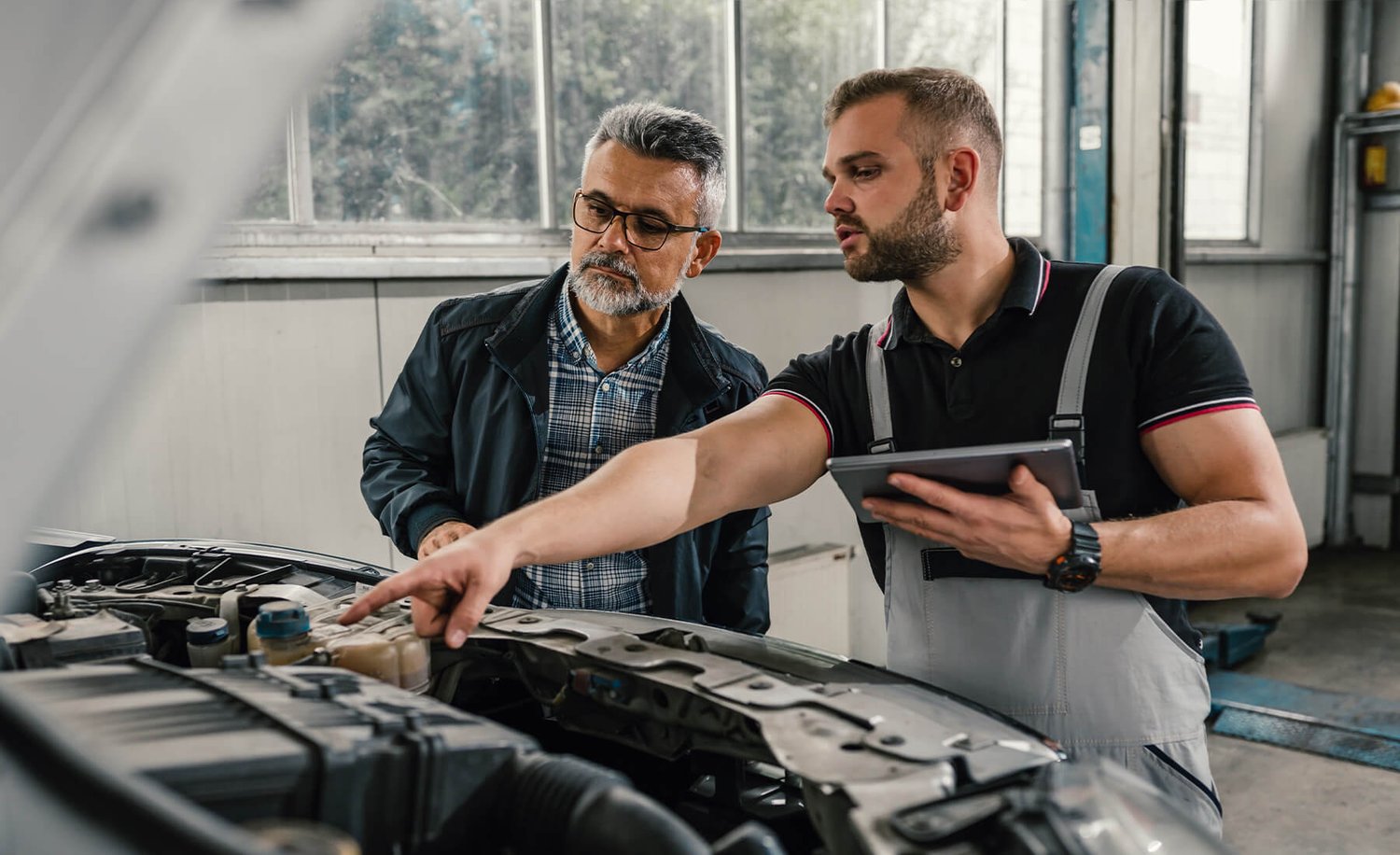All Categories
Featured
Engine repair work are typically one of the most pricey repair services you could experience as a car proprietor. The expense of repairing or changing parts of your engine can differ commonly, and several elements play a role in identifying the final cost.
As an example, a simple oil adjustment or trigger plug substitute may just cost you a few hundred bucks, while an engine restore or replacement might cost several thousand dollars. The extent of the issue and the components that require to be replaced are essential components in computing the last bill.
![]()
In addition, the quantity of labor needed relies on the sort of engine problem. A fixing requiring full engine disassembly will take far more time than changing a basic component, and this extra time is mirrored in the labor cost.
![]()
In addition, the make and version of your automobile can influence the expense of engine repair services. Deluxe or foreign lorries frequently need a lot more expensive parts that may be harder to locate, driving up the overall repair work expense. Usual residential vehicles have a tendency to have quicker available parts and might be less expensive to fix.
Older cars might additionally have trouble sourcing parts, particularly if the automobile is stopped or rare. In such situations, you might need to make use of reconditioned or utilized components, which can sometimes decrease expenses but might include extra threats relating to high quality and dependability.
On the other hand, vehicles from even more usual brand names like Ford, Toyota, or Honda tend to have lower repair service costs due to the fact that their parts are more commonly available, and numerous auto mechanics know with them. Repair stores often have the necessary devices for these cars, which helps in reducing labor time and prices.
![]()
Verdict. Engine repair service expenses can be significant, yet comprehending the factors that influence these expenses can assist you make better decisions when it comes time for repairs. The seriousness of the damages, the kind of parts utilized, labor rates, the make and model of your automobile, and the diagnostic charges are very important variables that add to the overall repair service expense. By taking into consideration these elements, you can much better approximate what your repair might cost and guarantee that you're not captured off-guard by any type of unforeseen charges. Constantly search, get numerous quotes, and consider the top quality of solution and parts when choosing a service center to get the finest worth for your money.
- The Extent of the Damages. The severity of the engine concern is perhaps one of the most substantial aspect in establishing the price of fixings. Minor engine problems, such as worn-out ignition system, harmed belts, or a defective sensor, are typically more affordable to fix because they do not need dismantling the engine. On the other hand, much more severe issues like a fractured cyndrical tube head, blown gasket, or a harmed crankshaft can be extremely pricey due to the complexity and considerable labor entailed.
As an example, a simple oil adjustment or trigger plug substitute may just cost you a few hundred bucks, while an engine restore or replacement might cost several thousand dollars. The extent of the issue and the components that require to be replaced are essential components in computing the last bill.

- Labor Costs. Labor is one of the key costs connected with engine repair service. Labor expenses can differ depending on where you live, as repair work shops in metropolitan areas typically charge a lot more per hour than those in country locations.
In addition, the quantity of labor needed relies on the sort of engine problem. A fixing requiring full engine disassembly will take far more time than changing a basic component, and this extra time is mirrored in the labor cost.
- Parts and Materials. The cost of substitute parts can also differ considerably, especially if you're making use of original equipment maker (OEM) parts or high-performance parts. OEM parts are commonly more pricey than aftermarket components, yet they are usually recommended to make certain the longevity and correct feature of the engine. Aftermarket parts are normally less costly and can offer a much more economical option, but they might not always fulfill the exact same quality standards as OEM components.

In addition, the make and version of your automobile can influence the expense of engine repair services. Deluxe or foreign lorries frequently need a lot more expensive parts that may be harder to locate, driving up the overall repair work expense. Usual residential vehicles have a tendency to have quicker available parts and might be less expensive to fix.
- Age and Gas Mileage of the Vehicle. The age of your car plays a significant duty in determining the cost of engine repair. Older automobiles with high gas mileage often tend to have even more damage on the engine components, which means that fixings might be extra pricey and substantial. In time, engine components put on down and are most likely to stop working, causing even more frequent repair services.
Older cars might additionally have trouble sourcing parts, particularly if the automobile is stopped or rare. In such situations, you might need to make use of reconditioned or utilized components, which can sometimes decrease expenses but might include extra threats relating to high quality and dependability.
- Vehicle Make and Design. The certain make and version of your vehicle will greatly affect the cost of engine repair services. Luxury brand names like BMW, Mercedes-Benz, and Audi commonly have higher repair expenses because their parts are much more pricey, and specialized understanding is needed to work on them. In addition, these brands might call for certain devices or analysis equipment, which can include in the total cost.
On the other hand, vehicles from even more usual brand names like Ford, Toyota, or Honda tend to have lower repair service costs due to the fact that their parts are more commonly available, and numerous auto mechanics know with them. Repair stores often have the necessary devices for these cars, which helps in reducing labor time and prices.

- Diagnostic Charges. Before carrying out any kind of repairs, the auto mechanic will usually conduct an analysis examination to figure out the root cause of the issue. Some repair service shops might use a discount or waive this charge if you choose to proceed with the recommended repairs, while others may bill it separately.
- Area of the Service Center. Where you take your automobile for repair services can additionally impact the rate. In contrast, fixing stores located in smaller towns or less populated locations may offer more competitive rates.
Verdict. Engine repair service expenses can be significant, yet comprehending the factors that influence these expenses can assist you make better decisions when it comes time for repairs. The seriousness of the damages, the kind of parts utilized, labor rates, the make and model of your automobile, and the diagnostic charges are very important variables that add to the overall repair service expense. By taking into consideration these elements, you can much better approximate what your repair might cost and guarantee that you're not captured off-guard by any type of unforeseen charges. Constantly search, get numerous quotes, and consider the top quality of solution and parts when choosing a service center to get the finest worth for your money.
Latest Posts
Identifying When Your Car Needs Skilled Auto Repair at Montclare Auto Repair
Published Jun 01, 25
1 min read
Discover the Leading Auto Repair Deals in Montclare, Chicago
Published May 26, 25
1 min read
Explore Reduce Expenses on Car Maintenance with Montclare Auto Repair’s Limited-Time Deals
Published May 25, 25
1 min read
More
Latest Posts
Identifying When Your Car Needs Skilled Auto Repair at Montclare Auto Repair
Published Jun 01, 25
1 min read
Discover the Leading Auto Repair Deals in Montclare, Chicago
Published May 26, 25
1 min read
Explore Reduce Expenses on Car Maintenance with Montclare Auto Repair’s Limited-Time Deals
Published May 25, 25
1 min read